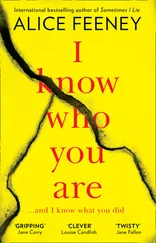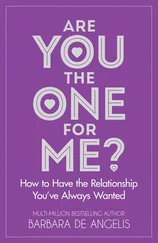I knew exactly which pair of underpants she was talking about.
“Soviet underwear was never so pretty. And I could not believe I was seeing American girl in her American underwear. She was like the ...” She paused as she groped for a word. Then she mimed a horn extending from her head and looked at me for help.
“Unicorn?”
She smiled. “ Da. Jennifer was like the unicorn.”
She was, I thought. I’d felt a similar sense of joyous disbelief when she emerged in my life. “Have you seen this book before?” I said.
Svetlana shook her head. She was rubbing the tip of her finger on Jenny’s pink cheek, as if the photo might release a wish-granting genie.
“There are more pictures of you in it,” I said. I knew the book so well that I could have told her exactly which pages those pictures were on. I had it memorized. I watched her turn the pages.
“We were just girls,” she said. “We believed everything they told us.”
“Who?”
“Our parents, our governments,” she said. “I believed in the party. I would stand when the Soviet anthem played on the TV. I had the picture of Lenin on my wall.” She laughed.
“And now?” I said.
“Now I have the picture of Kate Moss,” she said. “You know this British model?”
I nodded.
“After Jennifer returned to America, we promised to write the letters to each other ...” she said. “But this was not possible. There were censors.” She closed the book with a sigh.
“Did you ever hear from her again?”
“Da,” she said.
“When?” I said.
She returned the book without answering me. “ Ladno. Now we will begin our tour. You don’t mind to walk?”
“No,” I said. “I like walking.” I stood and awaited direction.
“Krasnaya Ploschad,” she said. We would start in Red Square.
* * *
SVETLANA LIT ANOTHER CIGARETTE as we walked along Bolshaya Nikitskaya toward the Kremlin.
“The plane that Jennifer was on,” I said, “was completely incinerated. No one could have survived that crash.”
“How you know she was on the plane?”
“Because,” I said. “The airport had a passenger list. There were names, there were official records.”
Svetlana snorted. “Official records! Officials are bribed to change documents. This is absolutely normal in Russia.”
“Do you have proof that Jennifer is alive?”
“Proof,” she said. “Like geometry, da? ”
“I came all the way here—” I said.
She cut me off. “And I will show you Moscow. Trust me.”
* * *
AS WE ENTERED RED SQUARE, she said, “Unfortunately, is not possible to visit Lenin today. Mausoleum is closed.”
Russians start a lot of sentences with “Unfortunately”; they are used to explaining what is not possible. But she showed me the plaques marking people buried in the Kremlin walls, including Brezhnev and John Reed, the American who wrote about the 1917 revolution in Ten Days That Shook the World.
“It’s like the picture of Jenny,” I said.
“Chto?” What?
“There’s a picture of Jennifer standing right here, by these tombs,” I said. “In her book. Are we allowed to take photographs here?” I removed my camera from my backpack and cast a nervous glance at the soldiers in front of Lenin’s tomb.
“Is possible,” said Sveta. So I showed her how to use my Nikon, and we re-created the picture from Jenny’s book. I posed with my hands in my pockets under the plaque marking the grave of Yuri Gagarin, the first man in space.
We weren’t the only ones taking pictures in front of the tombs. A bride fluttered in white next to her groom. It was customary, Svetlana explained, for newly married couples to visit a monument. It was hard to imagine a place less romantic than that wall commemorating the dead. But on our way through the Alexandrovsky Garden, we saw another pair of newlyweds by the even less romantic Tomb of the Unknown Soldier. The groom looked sour and rotting; the bride kept fussing with his tie, as if she could straighten his mood.
In Russian the word for “married” is different for men and for women. Married women are zamuzhem; if you break down the word to its roots, it translates as “behind the man.” In college I had deconstructed Russian words as a mnemonic device. As a preposition, za can mean “behind” or “after,” and as a prefix it begins verbs like those for “forget” ( To put the past behind you, I’d tell myself as I flipped through vocabulary flash cards in the library) and “conceal” ( To put the facts behind closed doors, I thought) and “envy” ( To see behind or look askance at ), to “fall silent,” to “imprison,” to “finish,” and to “close.” And yes, to get married. To get behind the man.
I asked Svetlana about this. She stopped and looked at me as if I were a curious specimen under a microscope. “You think too much,” she said. “This American feminism is no good. Is not sexy.”
I’ve never liked the word “sexy.” In high school my friends tried it on as if it were a costume a few sizes too big. Before Valentine’s Day they made stealthy trips to Victoria’s Secret, in hopes that a shock of red or black lace under their well-mannered clothes would persuade them that they had wild sides waiting to be unleashed. The boys at our brother school ranked us according to “hotness,” and as offended as we were by their rampant objectification of us as women, there was not a girl among us who didn’t secretly long to be on their hot list. The boys even devoted a page in their yearbook to the girls they deemed worthy of pinup status. It was a predictable group: athletic and sun-kissed; the hair was long, the breasts pert. We knew the boys weren’t worthy of passing judgment on us. And yet we had spent our lives chasing approval. We had been trained to get A’s. We were good at taking tests. We abided by rules and honor codes. We underlined our books, made careful observations in the margins, aced our SATs. And so these sons of statesmen, uniformed in blue blazers—they pulled off their ties at the end of the school day and swung them around like weapons—became another jury for us to please. Before we walked across the Cathedral Close to play fans at the boys’ lacrosse games, we brushed our hair, glossed our lips. They wore helmets; they brandished their lacrosse sticks like Vikings.
“I’m so relieved I’m not on the Babes page,” I said, commiserating with the others who had been passed over, but cloistered in the bathroom at home under the magnifying lights I studied my deficiencies. My cheekbones were high, my lashes were long, but I was too pale, my boobs were too small. I counted every clogged pore. One nostril was smaller than the other. And I knew that the real flaws were inside. Jenny, I thought, would have been one of the “hot” ones. Not just because of the symmetry in her features but because of the easy harmony of her moods. She was open to other people, she was game. She assumed that people would like her, and so they did.
“This is why you do not have husband,” Svetlana continued after a few minutes.
“You don’t have a husband anymore either,” I said.
She slit her eyes at me. “My ex-husband is Dutch,” she said. “This was the mistake. I wanted to marry foreigner, the man with money. But the Dutch ...” She paused before she made her pronouncement. “They are not passionate people.”
“Van Gogh wasn’t passionate?” I said.
“He was madman.”
“Where is your ex-husband now?”
“Oh, he is still in Moscow. He has new girlfriend from Scotland. I have seen her once. She is fat and red.” She flicked her cigarette onto the ground and returned the pack to her purse. “And now I live again with my parents. Until I find the new husband. I want an Italian this time. I am studying Italian. It would be nice to live in Napoli. I would eat beautiful pasta every day. I was traveling there last year. You know Napoli?”
Читать дальше












